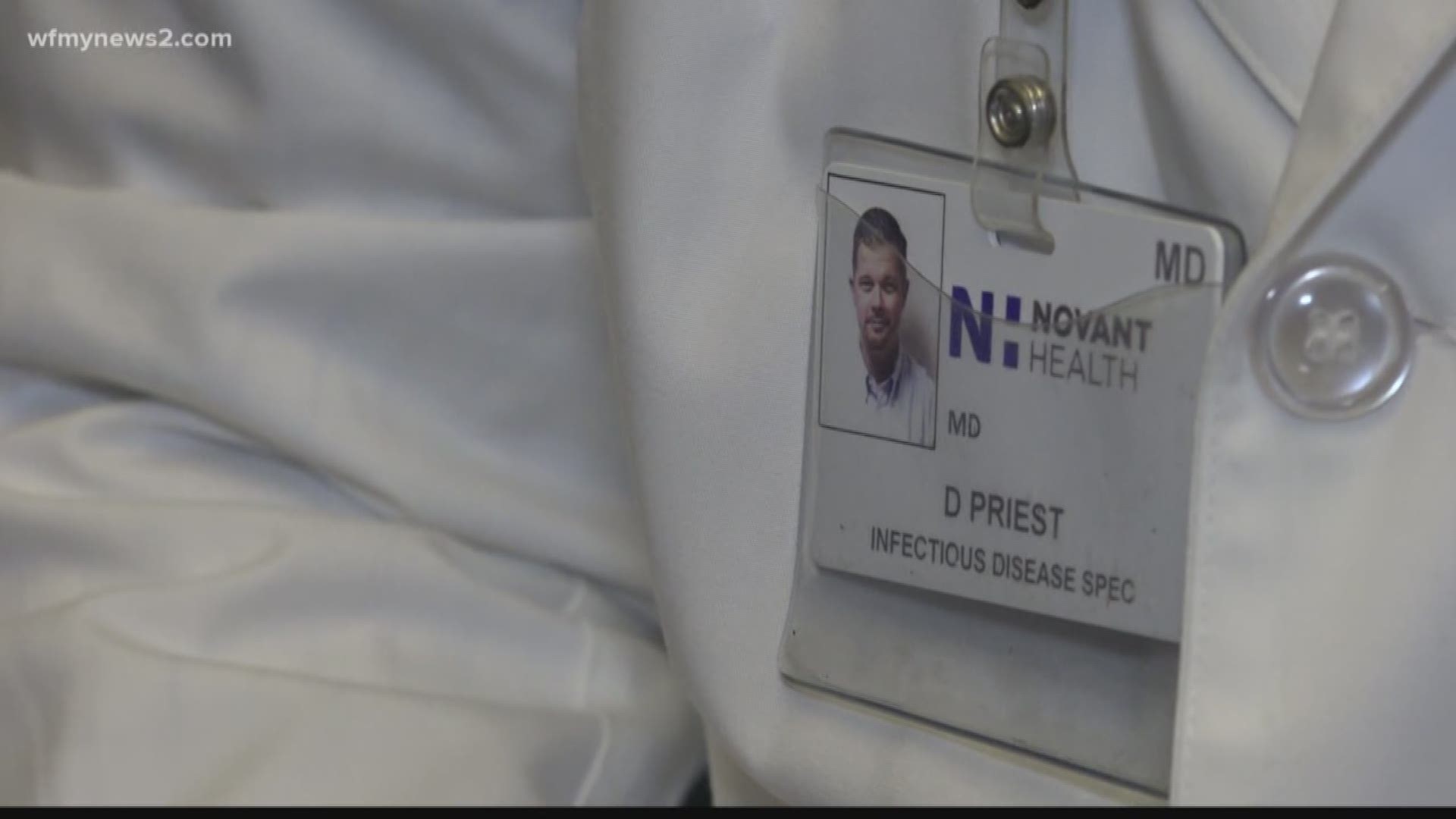It’s that time of the year where you start to hear coughs and sneezes just about everywhere you go.
You want to get better so you head to the doctors to see what’s wrong. Your illness will be classified into two categories- a viral or bacterial infection.
The problem is the symptoms for illnesses in both categories are similar but have different treatments.
Bacteria are small single celled organisms that can live on their own or inside people, plants, and animals.
Viruses are even smaller and need a living host to multiply.
Dr. David Priest, an infectious disease specialist with Novant Health, says distinguishing between the two is even tough for doctors.
“If a mother brings her child in to the pediatrician's office there is generally nothing available in real time to say we are going swab your kid's nose and put it in this machine and in 10 minutes I can tell you it's a virus. That's what's coming.” Priest said.
Right now, rapid test technology is only available for strep which is a bacterial. Tuberculosis and whopping cough are also bacterial infections all treated with antibiotics.
The common cold and the flu are viruses. It's important to know antibiotics won’t work on viruses.
“If we all take antibiotics we don't need it leads to resistance in the bacteria we carry around and ultimately potentially infections that we don't have antibiotics for,” Priest said.
For colds, the flu and most upper respiratory infections like a sinus or ear infections,
you're better off getting rest, drinking fluids and taking over the counter medications for your symptoms.
However, if you still feel bad after a week you should you a doctor because that virus infections could turn into bacterial infections.
When you get prescribed antibiotics, take all pills as directed even if you start feeling better. If you don't your body could become resistant to antibiotics later on.

